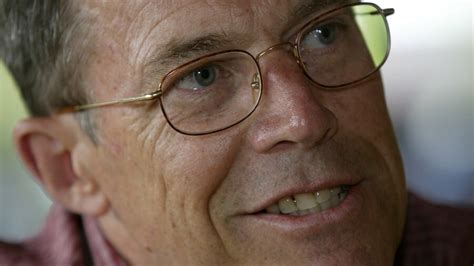A Quote by Nicholas Stern
I think that once people understand the great risks that climate change poses, they will naturally want to choose products and services that cause little or no emissions of greenhouse gases, which means 'low-carbon consumption.' This will apply across the board, including electricity, heating, transport and food.
Quote Topics
Related Quotes
I think when it comes to climate change, the single most important thing in the world is for the United States' Congress to pass an effective bill that will put a price in carbon because if it starts costing something to emit carbon, this will provide an incentive, people do act on the basis to some extent of economic incentives to emit fewer greenhouse gases.
I know we need more nuclear power in order - nuclear power, after all, is not dependent on fossil fuels and emits no greenhouse gases. I believe we're going to be able to have coal-fired plants that have zero emissions. We need to work on carbon sequestration technologies. I mean, there's a lot we can do together and achieve the objective, which a lot of people want, which is the reduction of greenhouse gases, and at the same time, have viable economic growth.
CO2 is a minor player in the total system, and human CO2 emissions are insignificant compared to total natural greenhouse gas emissions. Therefore, lowering human CO2 emissions will have no measurable effect on climate, and continued CO2 emissions will have little or no effect on future temperature....While controlling CO2 emissions from burning fossil fuels may have some beneficial effects on air quality, it will have no measurable effect on climate, but great detrimental effects on the economy and our standard of living.
Connect with people, visibly and loudly showcase initiatives that reduce greenhouse gases emissions, nurture youth leaders, or spread the message by raising awareness through campaigns. I am convinced that your contributions will ensure that climate change solutions safely power our - and especially your - future.
First, we must stop wasting energy. A quarter of the UK's carbon emissions come from the home. Our housing stock - the oldest in Europe - is costing us the earth... After transport, heating is the second biggest driver of energy demand in Britain. British Gas research suggests that householders who put in energy efficiency measures cut their gas consumption by 44%. Better insulated buildings will do much of the work for us.




































